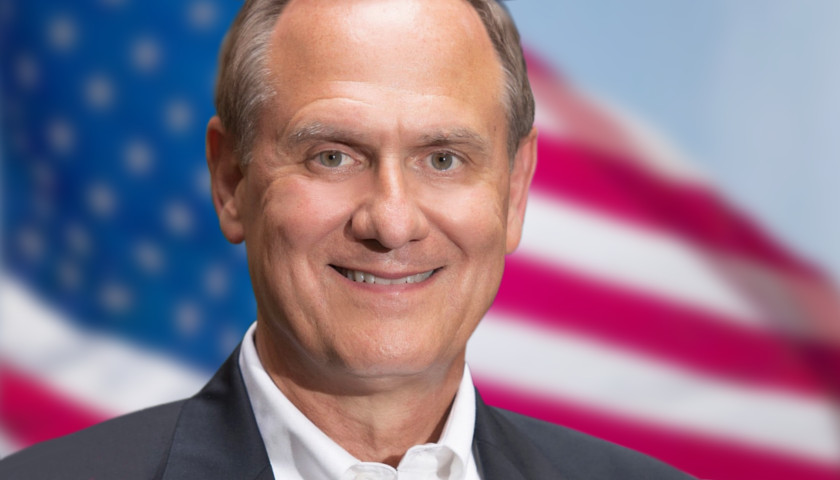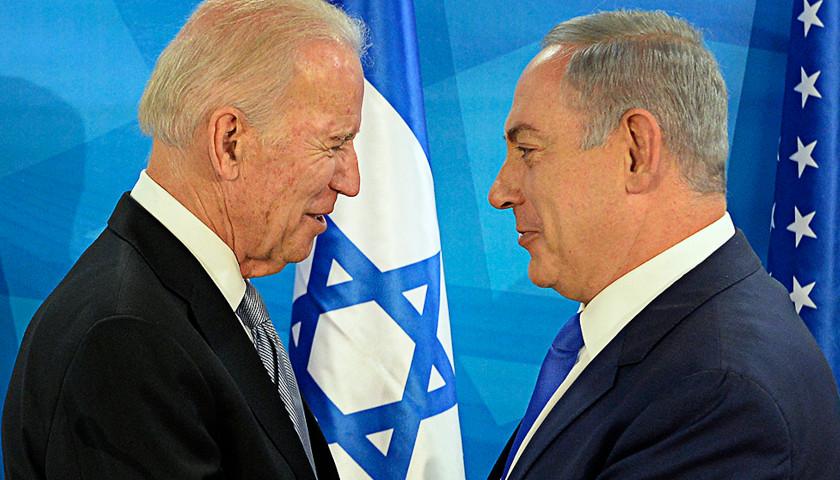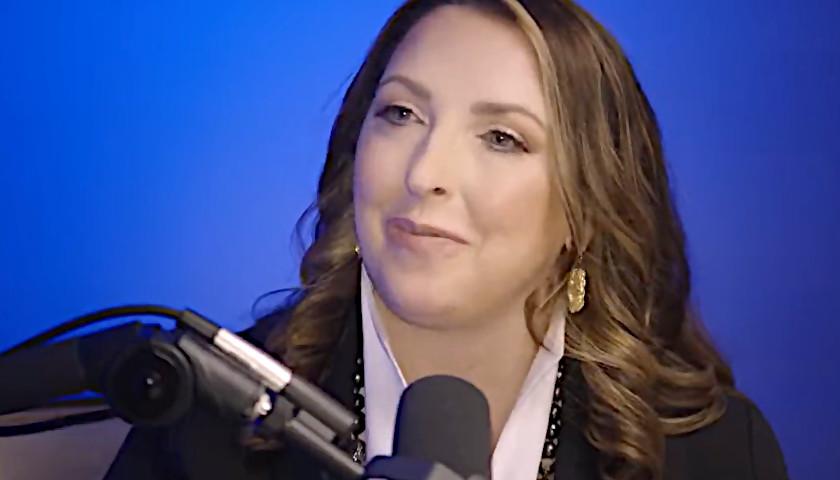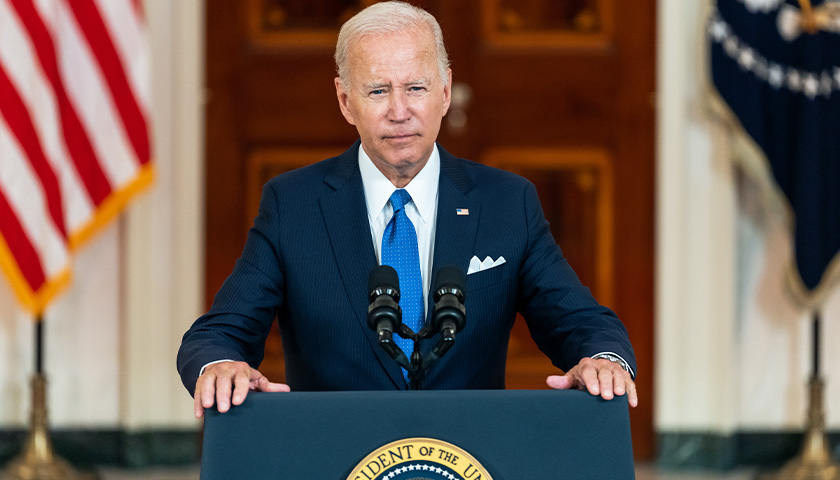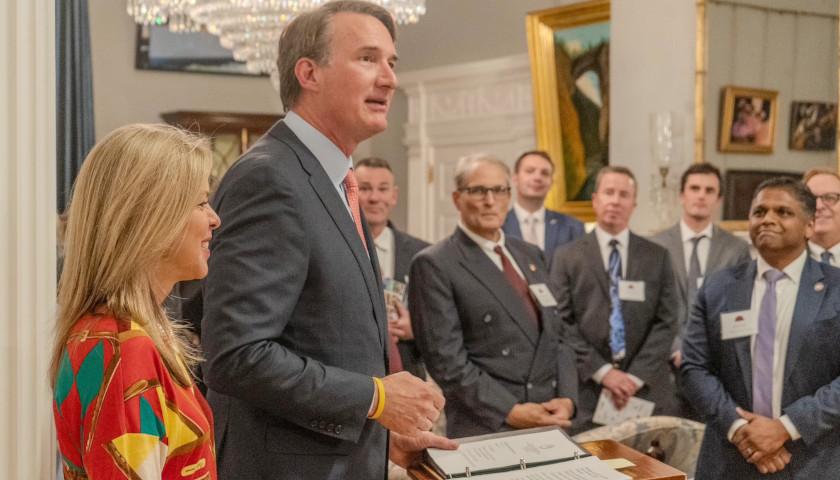Rich Anderson is the new chairman of the Republican Party of Virginia. On Saturday, August 15, delegates from around Virginia voted in an unassembled election using a drive-through format. The ranked-choice results saw Anderson win round one with 48.80 percent of the votes, where incumbent Jack Wilson was eliminated. In round two, Anderson took 62.28 percent of the votes, defeating Mike Schoelwer.
GOP strategist and former RPV chairman John Whitbeck said the results reflect problems in the RPV.
“We haven’t won a statewide race in eleven years,” Whitbeck told The Virginia Star. “[Anderson’s] chairmanship is going to be defined in large part by three things. Number one, the ability to raise money and keep the party financially secure; two, his ability to unify the party and all the different factions that have evolved over the years; and three, what happens in 2021.”
Whitbeck said the 2021 elections for Governor, Attorney General, and the Lieutenant Governor would be critical moments for Anderson.
Anderson is not scared, in fact, the challenge appeals to him. He says his 30 years of Air Force experience prepared him for this role.
“I’m accustomed to going into situations that are less than optimal and having a role in trying to straighten them out and put you on a winning foot once again,” Anderson said.
Anderson is not giving himself easy jobs. His first priority is to work for President Trump to win Virginia. Whitbeck agrees that the November election is critical for the RPV. However, he thinks the 2020 election is more linked to Trump’s following – do more of Trump’s haters or supporters turn out – rather than to the RPV chairman.
“I don’t think the RPV chair should be blamed for anything that happens in November [2020,]” Whitbeck said.
Anderson described three goals to help solve the RPV’s problems.
First, Anderson wants to significantly increase party fundraising. Second, he wants to change the RPV culture to register more Republican voters. Anderson said that culture change involves higher-energy recruitment efforts by local RPV units. Third, he wants to actively recruit competitive Republican candidates to run in every single race in Virginia.
“In 2019, I think a factor in our losses was that we just didn’t run people in almost three dozen races between the House and Senate. So those were guaranteed pickups for the Democrats,” Anderson said. “We absolutely have to put people on the field and let them compete.”
Whitbeck thinks that Anderson has a good chance of leading the RPV well. Anderson does not have any major enemies, has a reputation as a conservative, and is a nice guy, Whitbeck said.
The second place candidate, Mike Schoelwer, thinks Anderson’s election indicates a desire for change in the RPV.
“I think it says the Republican base is fired up, and they want to reelect President Trump,” Schoelwer said.
“I congratulate Rich Anderson on his victory and I look forward to working closely with him over the next 90 days to make Virginia competitive for Trump-Pence in 2020 and pulling off the biggest upset in Virginia political history,” said John Fredericks, Trump-Pence 2020 Delegation Chairman and 2016 VA Trump Chairman. “Now that the election is behind us, it is of paramount importance that we put our past differences aside and focus on the next three months. The stakes are very high.”
Anderson and Whitbeck agreed that the election was contentious. Anderson said that was a good thing. Because of COVID-19, discussion forums between the candidates were held in virtual meetings. The format allowed more people to attend and more issues to be discussed. Anderson said the discussions mostly aligned with his platform issues: better fiscal responsibility, more voter turnout and recruiting a stronger roster of candidates.
Growing up, Anderson was friends with Caldwell Butler’s son. Butler was a member of the Virginia House of Delegates who went on to the United States House of Representatives. Anderson grew up visiting the Butlers’ home and hearing political discussions, but Anderson never had political aspirations.
Then, in 2009, the Speaker of the Virginia House called Anderson and asked him to consider running for office.
“I guess I was susceptible to the call to run for office,” Anderson said.
Anderson became a delegate in 2010, and served four terms until January 2018. After he left office, he joined a number of boards and commissions. Anderson enjoyed that, but as he watched the RPV party decline, he needed to get back in the action.
In January 2020, Anderson decided to run, and began visiting all 126 Republican units across Virginia – all the hubs of local RPV activism. He said he modeled the kind of campaign work he wants to see in the RPV. Although he was feeling optimistic, he was working the phones all the way up until the night before his election.
“I find in politics when you start running for office, if you start getting confident, you start getting complacent,” Anderson said.
Although the national Republican Party has a strong, aggressive image, Anderson said that is a weakness for the RPV. He said that the Democratic Party of Virginia has cultivated an aggressive battlefield, and although RPV officials eventually learn to fight back, he needs candidates and volunteers who can fight.
Anderson said, “I want individuals who truly have the gut instinct for waging aggressive campaigns.”
– – –
Eric Burk is a reporter at The Virginia Star. Email tips to [email protected].
Photo “Richard Anderson” by Richard Anderson.

